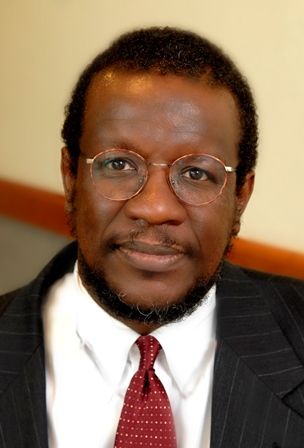Wednesday, May 8, 2019
UMES seniors who took “Strategic Management” (BUAD 495), a course that featured a mock stock market investment competition, learned this spring what it takes to be the next Warren Buffett.
Long-time business professor Bryant Mitchell builds his syllabus around “an advanced strategy business simulation” known as Capstone that he says “allows participants to apply what they’ve learned across all disciplines of business in a competitive and engaging learning environment.”
Fifteen students were split into six teams and over an eight-week period routinely outperformed counterparts. Four of UMES’ six teams finished in the top 10 percent of all competing teams.
“One of the primary reasons we use this tool is that it enables us to benchmark our students’ knowledge against that of students from over 600 major universities around the world,” Mitchell said.
In one category – return of sales, an overall measure of a company’s operating efficiency – all six UMES teams performed in the top five percent during the competition. Mitchell calls that performance “the primary basis of our teams’ competitive advantage” and is accomplished by employing best-practice management techniques.
Patrick Betz of Salisbury, who moonlights in antiques sales online, said success in the competition showed him “how I can apply strategies in my real-life business.”
“I enjoyed the simulation,” Betz said, because “I’m naturally competitive.”
Mitchell uses the Capstone business simulation because it “engages participants in a dynamic competition to turn struggling companies into successful, profitable businesses.”

Each round represents a full year for the fictional company, which Mitchell said gives student-competitors in his class a chance to “build their business acumen and decision-making confidence as they interpret data, shape strategies and experience the results.”
Mitchell said he believes the UMES teams did well because they discovered quickly that collaborative decision-making built “their business acumen and decision-making confidence as they interpret data, shape strategies and experienced the results.”
Derrick Beasley from Easton said he learned “you have to be more aggressive in your approach. We started out conservative, then were aggressive, then conservative. At the end we were all in.”
Betz said he found the competition was an ideal way to “apply all the droves of information you’ve been exposed to throughout your college career. It’s really rewarding to see how what you learned affects the different variable you have to work with in the competition.”
Some of the American institutions of higher education that UMES competed against this spring included Ohio State, Clemson, Penn State, Duke, DePaul, Hampton and Delaware Tech.
Mitchell also noted that Fortune 500 companies, such as General Electric, Oracle, Dell, Goldman Sachs, & Microsoft, employ Capstone business simulation models, which makes UMES graduates familiar with the program competitive in the job market.

